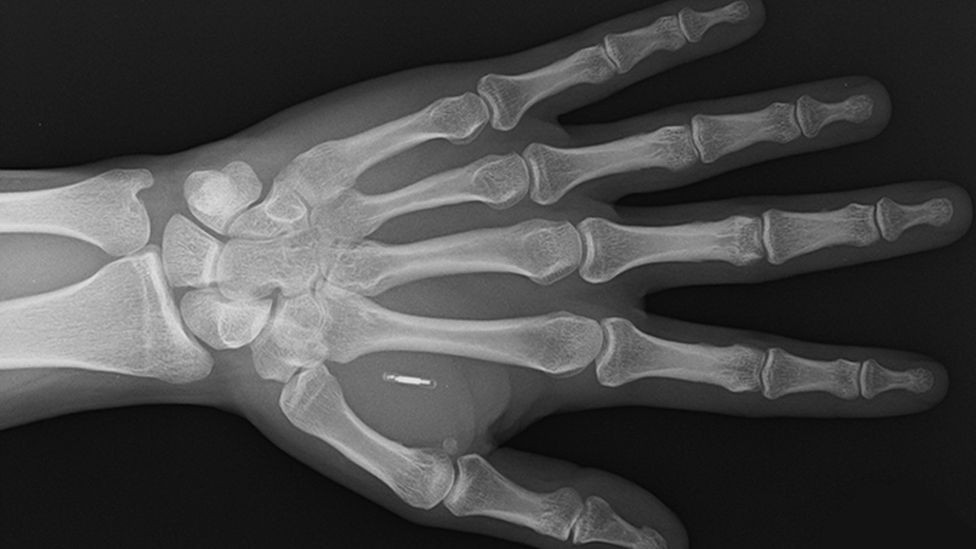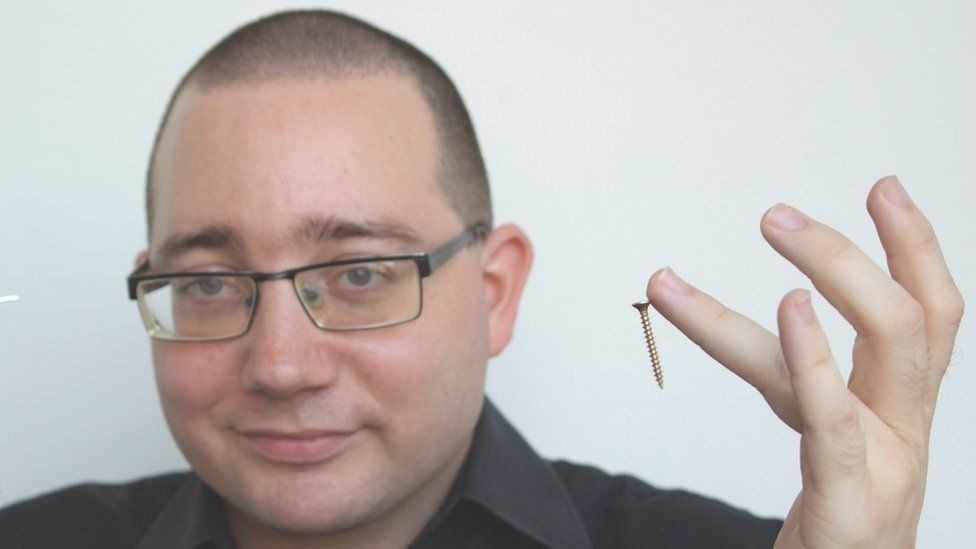When Patrick Paumen pays at a store or restaurant, things get mixed up for a while and all eyes turn to him. That’s because Paumen, 37, doesn’t need to use a debit card or cell phone to pay. Instead, he brings his left hand closer to the contactless card reader and the payment is made.
“The response from the cashiers is priceless,” says Paumen, a Dutch security guard, according to the BBC’s report. He can pay using his hand, as a contactless payment microchip was injected under his skin in 2019. “The procedure hurts as much as someone pinching your skin,” Paumen describes the process of integrating the microchip.
The chip under the skin of Paumen’s left hand reveals itself by glowing when it comes into close contact with a payment machine.

When it comes to subcutaneously integrated payment chips, UK-Polish firm Walletmor says it was the first to put them on sale last year. “The implant can be used to pay for a drink on the beach in Rio, a coffee in New York, a haircut in Paris – or your local grocery store. So it can be used anywhere contactless payment is accepted,” says founder and CEO Wojtek Paprota.
Less than a gram and slightly larger than a grain of rice, Walletmor’s chip consists of a small microchip and an antenna embedded in a biopolymer, a naturally-sourced material similar to plastic. Paprota claims it is completely safe, has regulatory approval, works immediately after implantation, and will stay firmly in place. It also does not require batteries or any other power source. The firm says it currently sells more than 500 chips.
The technology Walletmor uses is NFC, the near field communication or contactless payment system on smartphones. Other payment implants rely on radio frequency identification (RFID), a similar technology typically found in physical contactless debit and credit cards.

The idea of integrating such a chip into our body is frightening. But a survey of over 4,000 people across the UK and European Union in 2021 reveals that 51% will consider it. However, the report indicates that “invasion and security issues remain a major concern” for respondents.
Paumen says he doesn’t have any of these concerns: “Chip implants contain the same technology that people use every day. They’re already in everything from keychains to unlocking doors, transit cards like the London Oyster card, or debit cards with contactless payment functionality. there is.” Paumen adds that he is not worried that his whereabouts can be traced.
But the problem with such chips is whether they will be more advanced in the future and whether they will be flooded with a person’s private data.And the question is whether this information is secure, whether a person can actually be tracked
Nada Kakabadse, professor of policy, governance and ethics at the University of Reading Henley Business School, said: “Technology has a dark side with potential for abuse. Who owns the data? Who has access to the data? And is it ethical to chip people as we do to pets?” says Steven Northam, a lecturer at the University of Winchester. Founder of BioTeq, a UK company that manufactures chips. His implants are for people with disabilities who can use chips to automatically open doors.
Northam said, “We’ve had more than 500 implants in the UK, but Covid has caused some reduction in that. This technology has been used in animals for years. They are very small, motionless objects. No risk” opinion…

Paumen’s body has a total of 32 implants, including chips and embedded magnets to open doors.